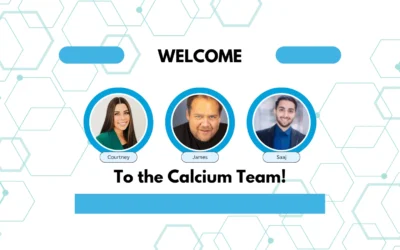Crain’s Chicago released their 2019 Notable Entrepreneurs list, which includes the top 44 business people who have identified needs and opportunities in the market, organized and run companies, and taken on greater than normal financial risks. Terry Ryan, founder and CEO of Calcium, was named a notable entrepreneur on the Crain’s top 44 business people list.
Terry Ryan was frustrated at the lengths he had to go to in order to obtain his health records. Being the entrepreneur that he his, he created Calcium to make it easier for consumers to obtain their health records.
Crain’s Chicago staff took time for a deeper dive with Terry, as the featured nominee. Read more about his thoughts below.
‘You need younger, unencumbered talent’
Terrence Ryan leads Calcium, a startup that aims to help consumers access their electronic health records and consolidate data on a single platform. It provides tools that will enable consumers to be proactive about wellness, such as reminders to work out. Users can share their data and track the health of children and elder parents. Ryan is a serial entrepreneur, having started a number of companies including consultancy Knightsbridge Solutions, which he sold to Hewlett-Packard.
CRAIN’S: How did you get the idea for Calcium?
RYAN: I find the blank white space very enjoyable. I looked at what was going on in the industry, and it challenged me to understand why the consumer wasn’t the center of the equation.
How will the venture make money?
From providers, who will be able to get access to a patient’s historical data before that patient walks in the door. Afterward, they can see how a patient is doing. Is she going to physical therapy, taking her meds?
What’s the hardest part?
It’s in front of us. Patients have the legal right to request their data, but they can still be refused. Providers may claim they are protecting patient privacy, but they’re looking out for themselves. We need to break down that barrier.
How will you reach your consumer audience?
There’s a world of social media tools. Tweets get to 40 million people at no cost. Compare that to the $200,000 marketing campaign of the past. You have to surround yourself with the people that understand social media and can make sure we’re positioned on these platforms in the right way.
What lessons from your previous entrepreneurial experiences have you been able to apply?
I know how to build a company, where and when you take risk and roll the dice. Beyond that, I’ve reflected on past companies I built that were good, but maybe weren’t great. How do we do it differently? You need younger, unencumbered talent that understands the latest in product development as well as sales and marketing.
How do you see Chicago as a center for entrepreneurship?
The incubators have too many people together that are too alike, at a similar stage. They’re trying to incubate through a network rather than using the resources of people who have done it before. Incubators need to do a better job attracting credentialed people. When I look to raise institutional capital, the people on both coasts are at a higher level of thinking and expertise. But Chicago people are salt of the earth. You get a straight answer.

















